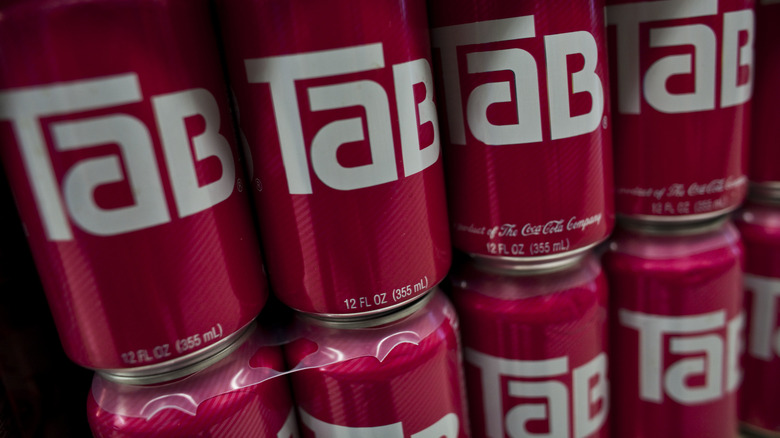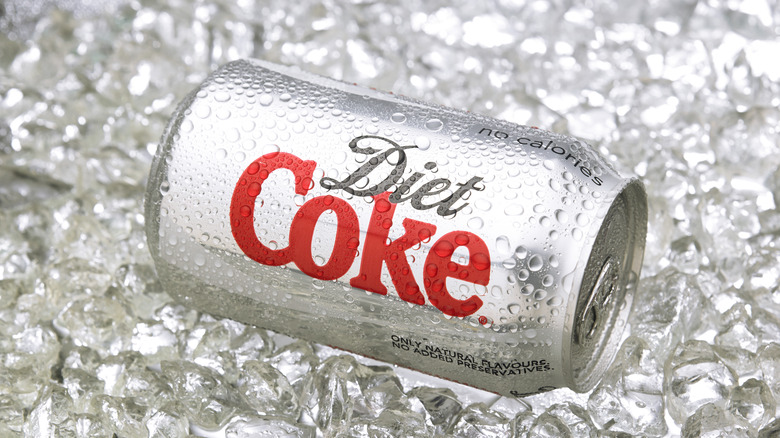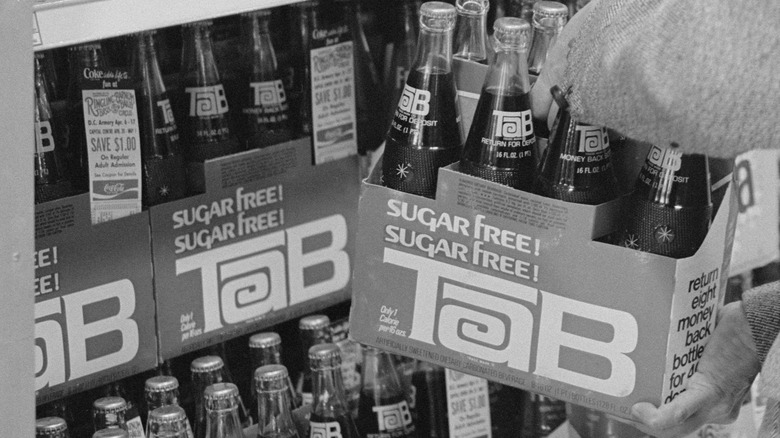The Reason TaB Soda Was Discontinued
The market for diet soda may not be saturated with real sugar, but it is certainly saturated with options. From Diet Coke to Pepsi Max, it seems that for every soda product, there is at least one sugar-free alternative. While myriad zero-sugar sodas are popular today, they are relatively new in the soda industry as a whole.
TaB soda (no, not tap soda), which was introduced by the Coca-Cola company in 1963, was once a pioneer in the sugar-free soda sector ... or at least in the sector of sugar-free sodas people actually enjoyed. A few other options were sold at pharmacies, but they weren't that appealing to consumers, as their flavors paled in comparison to "real" or commercial sodas. However, as more consumers started becoming aware of their sugar intake, the demand for diet beverages grew.
Since TaB was regarded as the tastiest in this segment, it skyrocketed in popularity, becoming the top diet beverage in the U.S. in the 1970s and early 1980s. However, in just a few decades, TaB went from being America's best-selling diet soda to, in 2020, being discontinued. The reason comes down to the pressure of competition and the changing awareness regarding the ingredients in these products.
Enter the competition
TaB Soda was at the top of its game in 1982, but that was the same year Diet Coke hit the shelves, which was Coca-Cola's response to the success of Diet Pepsi. Though TaB was a cola drink often described as having more complex fruity notes, Diet Coke was meant to better approximate the familiar flavor of Coca-Cola Classic, without the sugar. Given its instant success, the Coca-Cola Company shifted marketing efforts toward Diet Coke and away from TaB, and as a result, sales dwindled.
In addition to its crisp, familiar flavor, Diet Coke was sweetened with aspartame, whereas TaB was sweetened with saccharin (the same compound used in Sweet'N Low). In 1981, the National Toxicology Program's "Report on Carcinogens" shed light on the potential harms of saccharin. Publicized as a cancer-causing substance, consumers grew wary of the artificial sweetener (though the studies linking saccharin to cancer were mostly debunked in the year 2000, according to the National Cancer Institute). Though aspartame would eventually also stir up public concern as well, at the time it seemed the safer alternative. This public worry worsened sales, and TaB Soda, once a mainstream product, had a mere 1% share by 2001.
Is a revival on the horizon?
For most diet beverage consumers, TaB's waning availability was quiet and its disappearance unceremonious. Stores that stocked TaB became fewer and farther between, as did those who knew of the brand, let alone consumed it. By then, many drinkers were seeking diet sodas that were free of aspartame, as it faced a scrutiny similar to saccharin from health agencies. However, a small group of tenacious superfans kept it alive those final anemic years, and even hope for its return.
The TaB devotees mourned and even stockpiled for what became known as the "TaB Apocalypse," but they have not given up on the idea it could be revived. To this day, the impassioned group is advocating for Coca-Cola to bring TaB back. An entire website, "Save TaB Soda" is devoted to the cause, complete with a petition that has garnered over 7,000 signatures. Whether Coca-Cola will ever bring TaB back is unclear, but what is clear is that its loyal army will continue to fight for its return.


